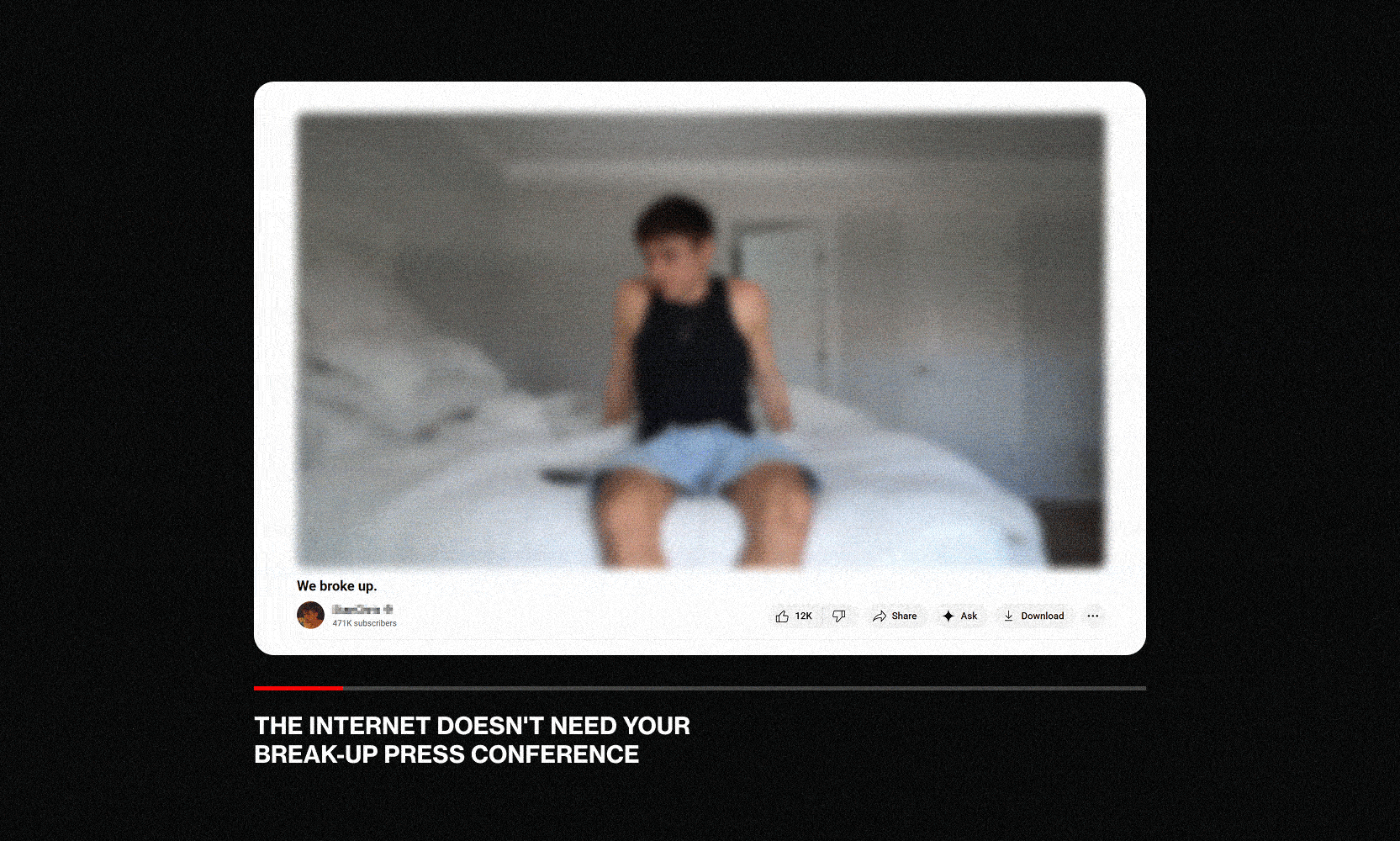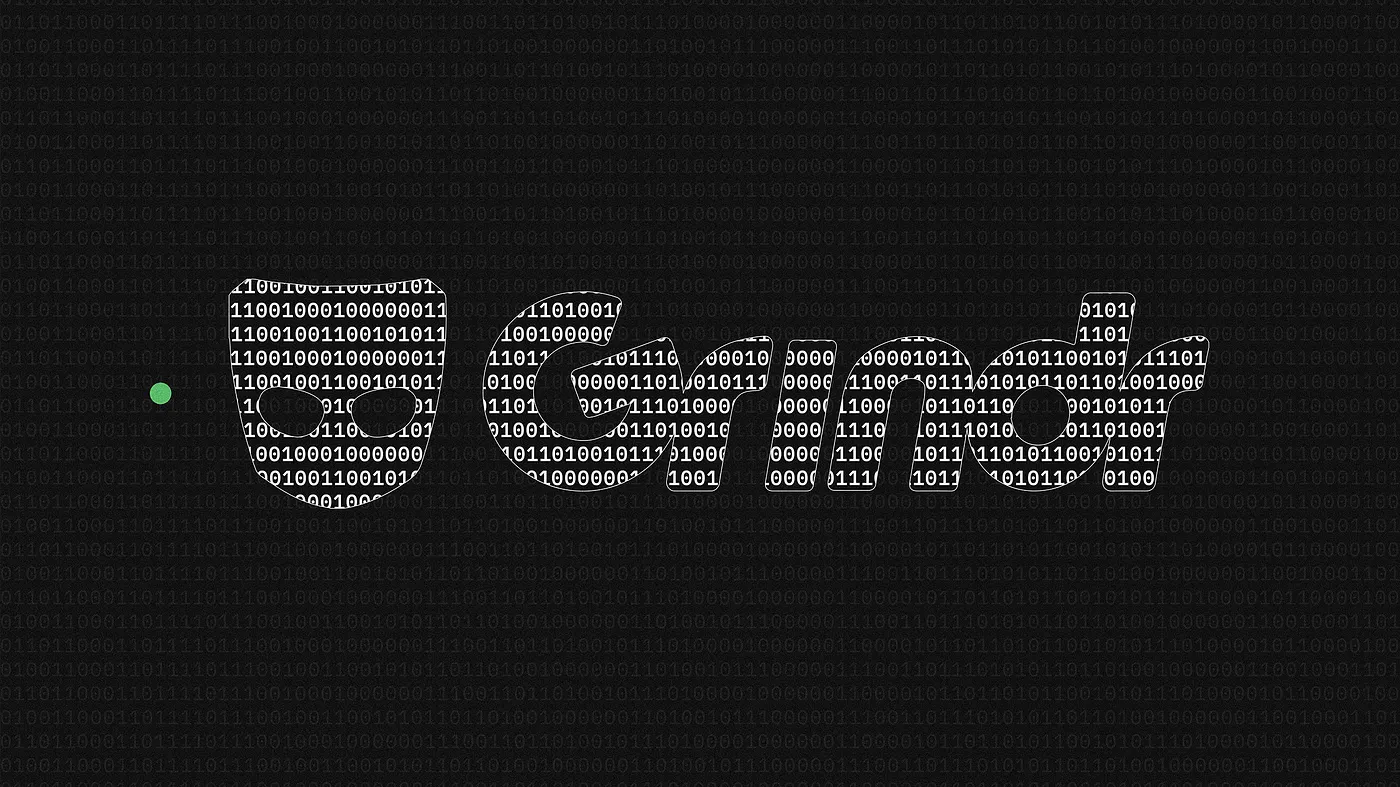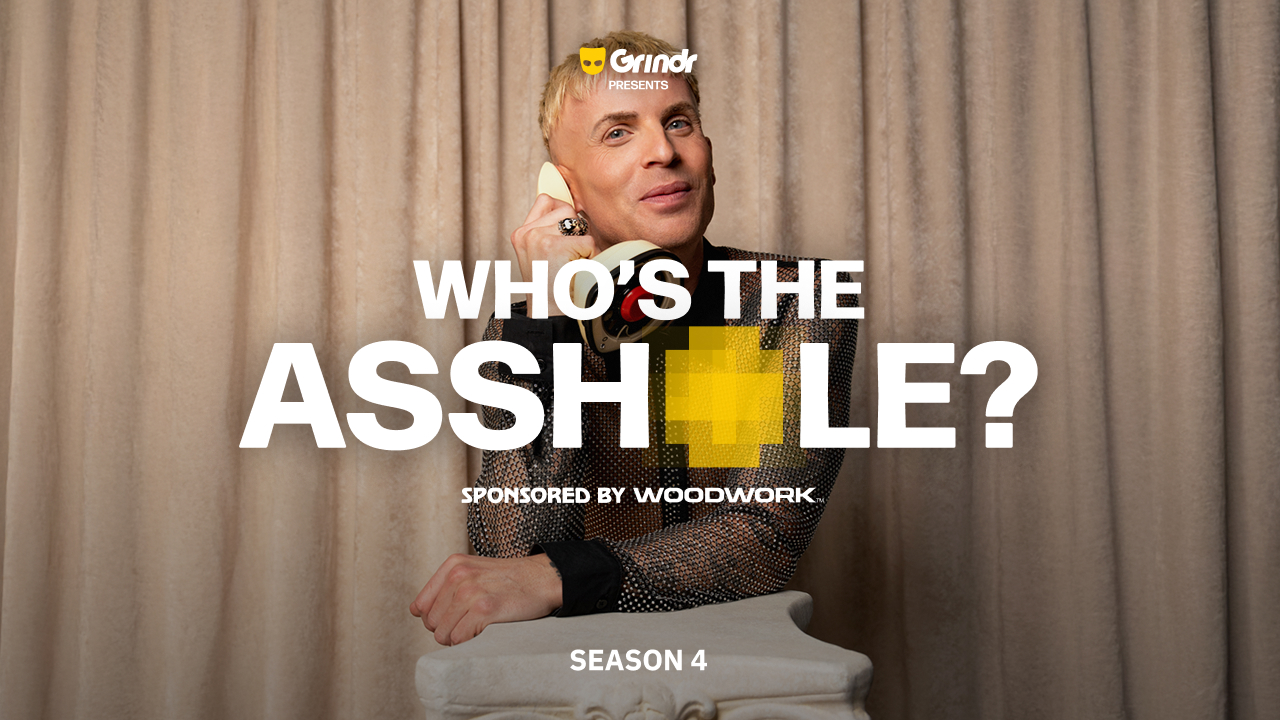The Impossible Balance of Breaking Up Online


In case you missed it: in a now-deleted TikTok, two gay lifestyle influencers announced the dissolution of their 12-year relationship, and the apparent mismatch in their moods sparked days of widespread jokes and speculation about who dumped whom and why.
While we genuinely feel for anyone navigating a public breakup, the spectacle got us thinking: why did a couple with an impressive following—but not exactly Brad and Jennifer levels of fame—feel they owed the internet a joint announcement in the first place? Was there any way this could have gone well?
After a deep dive into dozens of similar videos—most of which are called "we broke up" with varying levels of caps lock—we've noticed a pattern. Break-up reveal videos rarely land the way anyone hopes.
Why the format feels uncanny
We all know that all lifestyle content, especially when centered around a seemingly perfect relationship, is performative. Not in a bad way, but it’s literally catered to be watched by an audience.
The best of them feel real enough to suspend your disbelief: a “get ready with me” video can seem like a peek into a couple’s morning; a direct-to-camera address can feel like chatting with a bestie, even if you can’t talk back.
But a joint break-up video just doesn’t map to any real-life scenario. In the offline world, exes share that news with friends and family privately, personally, and typically separately.
So right away it’s uncanny: why is this couple explaining they’re no longer together… together?
That mismatch can create a sense of awkwardness. That’s why we get sing-songy declarations (see: “we are getting divorced!”) or couples inventing new corporate jargon to explain they will now be “moving through the world unromantically,”
It feels staged at a moment that really calls for space. Breakups are something we all go through, and usually they’re private, even when messy. Watching them turned into content can feel like peeking at something we shouldn’t.
The impossible balance
But you can also see the bind for creators, too. What are they supposed to do—ignore the speculation? Address it? Either choice leaves them exposed. That tension is exactly what makes these videos feel impossible to win.
And often, creators explain that the trappings and pressures of internet fame made it harder to be themselves. They made careers out of broadcasting every part of their lives to their followers, so when it ends, the silence feels just as performative as the announcement.
That’s the impossible balance at the heart of these videos: the more they try to close the loop for their audience, the more it risks pulling them deeper into the spectacle.
They're messy
These videos carry uneasy, sometimes contradictory notes. But, as the fist-bumpers proved, it’s the bits of seeming reality sprinkled in that cause the real trouble.
Because as manufactured as social media may be, it’s still created by real people in real pain. And while no one knows what they’re truly going through, the internet will inevitably seize on any available hint to piece the story together.
In practice, these videos that are framed as a departure from your regularly scheduled programming become just another genre of content. Heartbreak turns into meme fodder, while offhand lines like “we both grew apart, but I guess he grew apart from me faster than I grew apart from him” stick forever in your brain.
It’s understandable why creators feel they owe something to their supporters. But the best move here is to keep it simple: as much as fans care, they also know it’s all a performance, and that real life is messy. They don’t need mom and dad (or dad and dad or mom and mom) to sit down and spell it out.
In the end, maybe the only thing more awkward than watching two people break up online is realizing the internet has become part of the relationship itself. And like most third wheels, it doesn’t make the split any easier.










.jpg)
.gif)
.gif)
.png)


.jpg)









